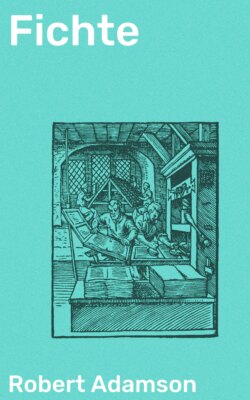Читать книгу Fichte - Robert Adamson - Страница 9
На сайте Литреса книга снята с продажи.
Footnotes
ОглавлениеTable of Contents
1 ↑ Leben, i. 55–58. The whole letter, as there given, is translated by Dr. Smith.
2 ↑ It is impossible to give any exact single equivalent in English for the term Recht, which in different references may mean either law or the rights of the individual about which law is concerned, may be either an abstract or a collective notion, and may signify either positive enactments or the ultimate ethical foundation for such enactments. In Fichte’s writings a right is the specific mode of action, or realisation of a motive in external fact, which is indispensably necessary under the supposition of a common ethical law or supreme ethical end. Assuming such moral end, we can point to specific modes of action which must be approved by the community, unless violence is done to the very notion of ethical law. Alongside of this, however, there are rights which are mere specific modes of action approved by the community as a whole, though not indispensable for the realisation of the ethical end.
3 ↑ Fichte’s argument here may be compared with the fuller and more concrete treatment of the same problem in J. S. Mill’s tract, “On Liberty.”
4 ↑ This contradiction is left as a kind of unsolved problem by Kant (see ‘Rechtslehre,’ § 49, ‘Allgemeine Anmerkung,’ A.)
5 ↑ It is interesting to note that Fichte supports his argument in favour of a state within the state, by pointing to examples of such dual formations. These are mainly the existence of Jews in a Christian community, and the existence of a military class. His expressions with regard to the Jews are hardly exceeded in bitterness by any of the modern assailants of the Semitic element in Germany. See specially ‘Werke,’ vol. vi. pp. 150, 151.
6 ↑ Especially the ‘Geschlossene Handels-staat’ and the ‘Staatslehre.’
